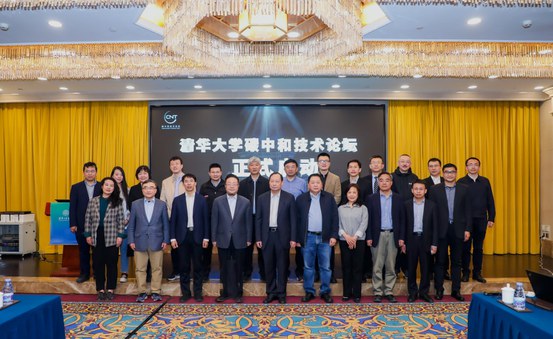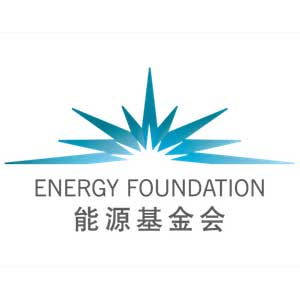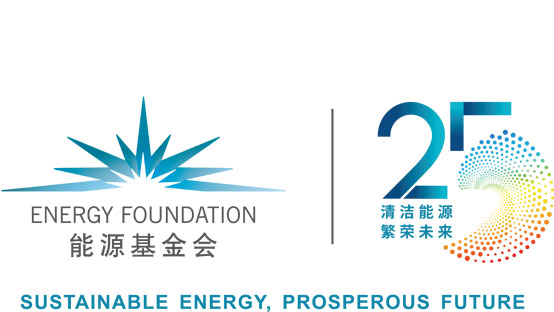FIRST CARBON NEUTRALITY TECHNOLOGY FORUM KICKED OFF
On April 18, 2022, with the support of the Energy Foundation China (EF China), the Tsinghua Institute for Carbon Neutrality (ICON) hosted the launching ceremony of its Carbon Neutrality Technology Forum and the first session themed “A New Power System and Carbon Neutrality.” This session aimed to explore the design of a new power system for China that features renewable energy, accelerates the clean and low carbon energy transition, and helps achieve China’s carbon peaking and neutrality goals.
Zou Ji, CEO and President of EF China, Zeng Rong, Vice President of Tsinghua University, and He Kebin, Dean of the Tsinghua Institute for Carbon Neutrality, made opening remarks for the forum. Guo Jianbo, academician of the Chinese Academy of Engineering (CAE) and consultant of the State Grid Corporation of China, Wang Zhongying, Director of the Energy Research Institute of the National Development and Reform Commission, Kang Chongqing, Director of the Department of Electrical Engineering of Tsinghua University, and 17 other experts were also present at the launching ceremony. Nearly 100,000 people watched the online meeting via a livestreaming service.
Zou Ji said that science and technology had remained the primary productive force in today’s China and the achievement of carbon neutrality relied on technological innovation and rapid industrial development. He believed that Tsinghua’s interdisciplinary research on technology would help with China’s R&D and demonstration of carbon-neutral technology and drive a new socio-economic pathway, which would contribute to the early realization of carbon neutrality.
Mr. Guo’s keynote speech presented his thinking about how to design a new power system for China. He said that such a system would have new characteristics in terms of its functions required policies and regulations, supply-demand dynamics, power sector readiness, and electricity pricing and markets. Facing the challenges of adequacy, security, and availability of the new power system, China should prepare a sound plan featuring capacity building for more flexible energy resources, grid R&D and innovation, comprehensive technology overhaul, enabling policies, and market mechanisms. He believed that it was important to establish the renewable energy infrastructure before transitioning away from the traditional energy mix. The new system should possess better sustainability and continuity than the existing system and should make effective use of the existing stock assets and take into account the evolutionary process of system development. During the stage when the old and new systems coexisted, China needed to ensure the policies, regulations, and technologies were there to support the smooth transition, said him.
Following the speeches, a panel of experts made themed presentations as well. Wang Fei, Professor of the North China Electric Power University, said that the key to power balance in the new power system was the wide application of demand-side response and marketized virtual power plants. Wang Zhifeng, researcher at the Institute of Electrical Engineering of the Chinese Academy of Sciences, said that the fifth-generation solar thermal power generation technology in development would not only satisfy the basic power load but also serve as a flexible peak-shaving capacity for solar and wind power, presenting itself as a key alternative to thermal power in the future. Besides, Ci Song, researcher of the Department of Electrical Engineering at Tsinghua University, Hou Jingming, Deputy Director of the Economic & Technology Research Institute of the Global Energy Interconnection Development and Cooperation Organization, and Yu Zhanqing, Deputy Director of the Department of Electrical Engineering of Tsinghua University, discussed important topics including digital energy computing, new power systems for buildings, demand response and virtual power plant technologies, and direct current technology based on large-capacity semiconductors.
Subsequently, Zhang Ning, Associate Professor of the Department of Electrical Engineering at Tsinghua, introduced the preliminary outline of a proposed report titled “China’s New Power System: A Technology Perspective.”
EF China will continue to support ICON’s forum and a range of research projects, which aim to formulate a technology roadmap to carbon neutrality in China. These projects will be focused on frontier issues of carbon neutrality, including technology innovation, infrastructure deployment, and development strategies.

More than 20 experts attended the first session of the Carbon Neutrality Technology Forum hosted by the Tsinghua Institute of Carbon Neutrality on April 18, 2022.
Photo by the Institute of Carbon Neutrality, Tsinghua University



